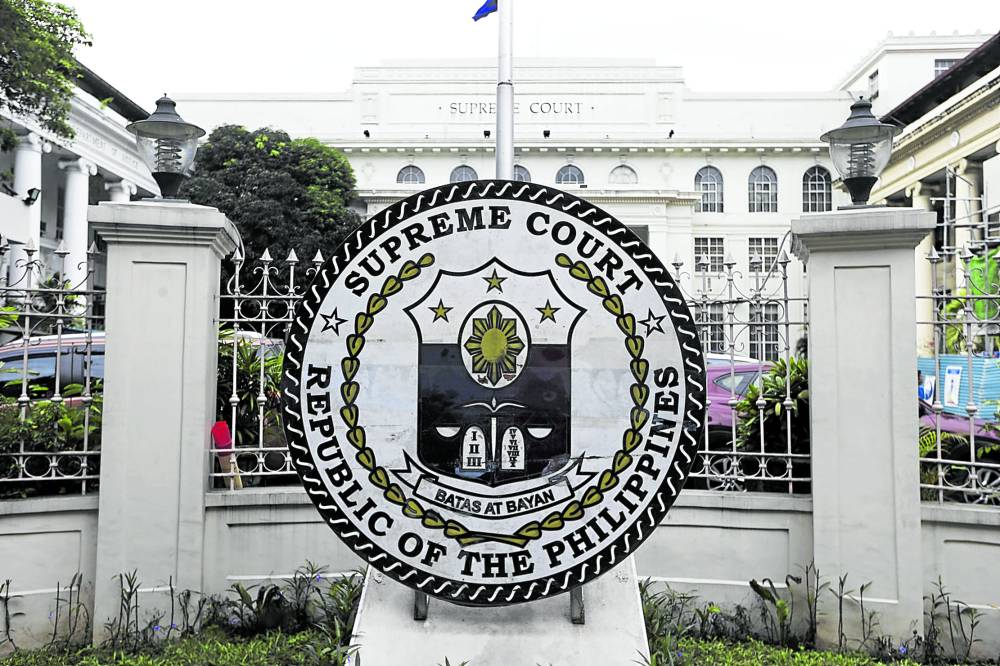SC sides with Philippine Air Force pilot’s heir on housing loan issue

Inquirer photo/Niño Jesus Orbeta
MANILA, Philippines — Better late than never, even if it takes 44 years.
The Supreme Court has ruled that the brother and sole heir of a Philippine Air Force (PAF) pilot who died in the line of duty in 1980 is allowed to settle the outstanding socialized housing loan of the deceased soldier to avoid foreclosure.
In an 18-page decision promulgated on April 3 but made public only on Wednesday, the high court’s Third Division granted the petition for review on certiorari filed by Felimon Torres, allowing him to apply for a restructuring of the housing loan of his late brother, 2Lt. Dominador dela Cena Torres Jr., with the Government Service Insurance System (GSIS).
READ: Fine print of contracts
In granting Torres’ petition 44 years after his brother’s death, the high tribunal emphasized that, more than others, “the socialized guarantee of security is most required by Filipinos who serve in the military and allied forces—they who stand in uniform, daily put their lives on the line and protect our lives and liberties, often at the cost of theirs.”
“[T]he assurance of dignity of a shelter to come home to is earned, even deserved, by those who all too often have to leave their lives behind and march towards the threat of their early graves at a moment’s notice,” it said in the decision penned by Associate Justice Alfredo Benjamin Caguioa.
P76K housing unit
In 1979, Dominador, then an active combat helicopter pilot, entered into a deed of conditional sale (DCS) over a piece of real property, a low-cost housing unit in Soldiers’ Hills Village, Muntinlupa City, worth P76,830.
It was to be financed by a secured housing loan from the GSIS, payable through salary deductions.
Less than a year later, however, he died when his PAF chopper crashed while on a mission in Lanao del Sur, Mindanao.
Unanswered letters
Dominador, who was single and had no children, died without leaving a will. When his parents passed away in 1986 and 1997, his brother Felimon was left as his sole heir.
Meanwhile, the GSIS, unaware of Dominador’s death, sent several letters to his last address regarding the amortization of his housing loan.
As the letters remained unanswered, the GSIS sent a notice of foreclosure or cancellation, which stated that it would undertake foreclosure proceedings on all low-cost housing loan accounts that were considered delinquent.
Felimon objected to the GSIS notice, saying that ownership of the property must be consolidated in his name following the institution’s sales redemption insurance (SRI) policy.
The SRI is intended to guarantee the full settlement of the loan balance in case of the borrower’s death within the loan term.
Nonetheless, he expressed willingness to pay the outstanding balance if the GSIS rules that the loan is not covered by the SRI.
CA overturned
In 2005, the GSIS denied Felimon’s claims, finally canceled the DCS, and demanded that the occupants vacate the property.
The decision was affirmed by both the GSIS board of trustees and the Court of Appeals (CA), prompting Felimon to elevate the case to the Supreme Court.
The Supreme Court, however, overturned the CA’s decision in 2016 and remanded the case to the GSIS board for the determination of loan payment restructuring in favor of Torres.
While the Supreme Court ruled that Dominador’s housing loan was not covered by the SRI since the insurance premium had not been paid, it held that his brother could still avail himself of loan restructuring under GSIS Resolution No. 48.
Still applicable
The policy provides that the legal heirs of deceased housing loan borrowers with remaining unpaid balances may avail themselves of remedies under the GSIS Housing Loan Remedial and Restructuring Program.
Although it was implemented only from 2013 to 2014, the high court said the program should still apply to Torres as his inability to take advantage of the remedies was not his fault; during the implementation period, his motion for reconsideration was pending before the GSIS Board.
The Supreme Court also commended both the GSIS Board and Felimon for exhibiting “good faith,” as shown in the former’s procedure in collecting from Felimon the outstanding payments due and the latter’s willingness to settle the obligations.
“It goes without saying that, perhaps, other private and profit-driven lending institutions might not have been as inclined or willing to let a quarter of a century lapse before they closed in on the cancellation of a delinquent contract,” said the high court.